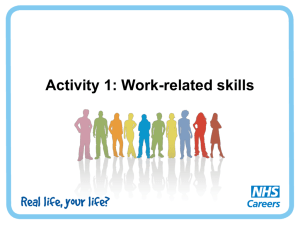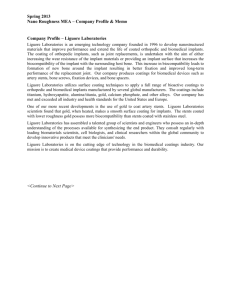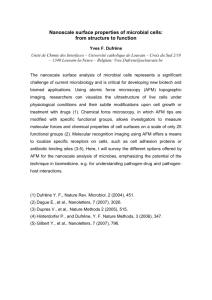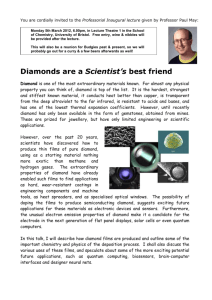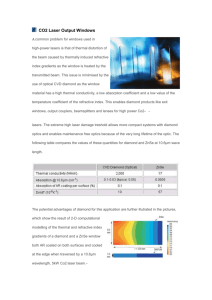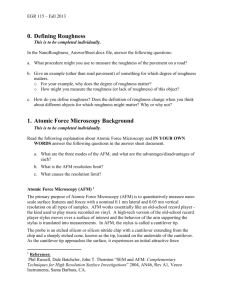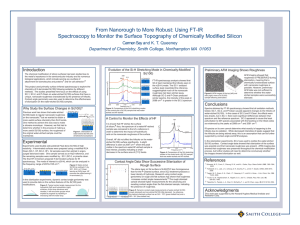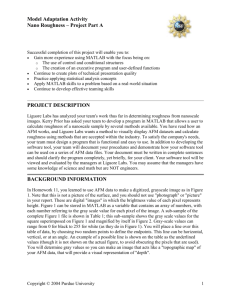Lab - Part B - Purdue University
advertisement
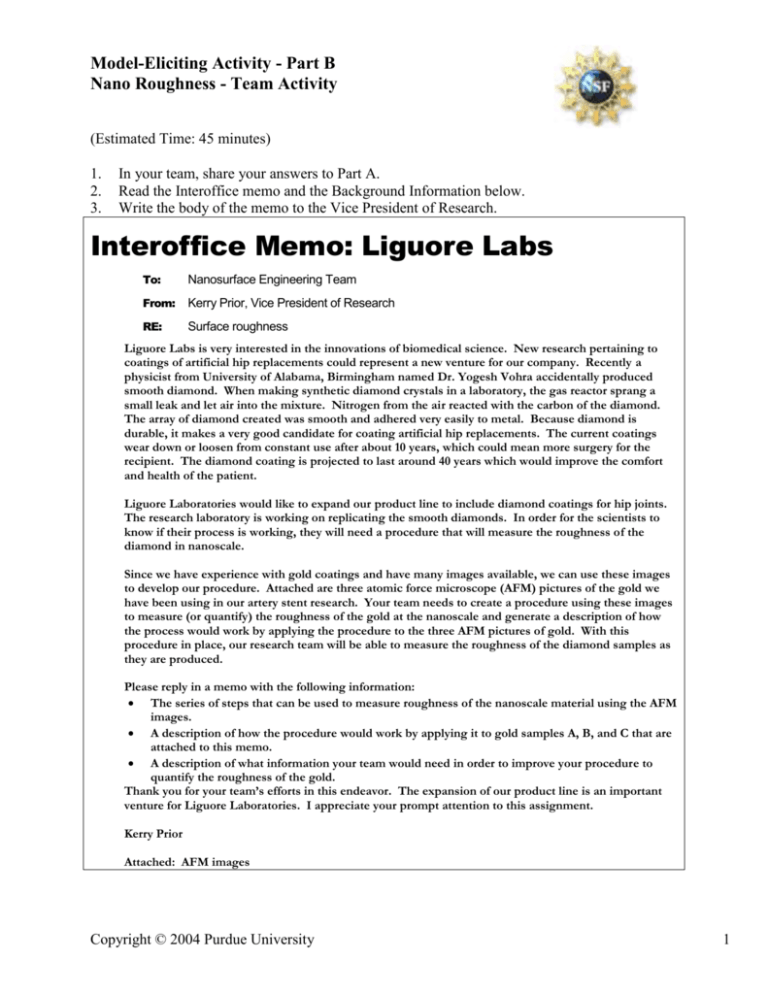
Model-Eliciting Activity - Part B Nano Roughness - Team Activity (Estimated Time: 45 minutes) 1. 2. 3. In your team, share your answers to Part A. Read the Interoffice memo and the Background Information below. Write the body of the memo to the Vice President of Research. Interoffice Memo: Liguore Labs To: Nanosurface Engineering Team From: Kerry Prior, Vice President of Research RE: Surface roughness Liguore Labs is very interested in the innovations of biomedical science. New research pertaining to coatings of artificial hip replacements could represent a new venture for our company. Recently a physicist from University of Alabama, Birmingham named Dr. Yogesh Vohra accidentally produced smooth diamond. When making synthetic diamond crystals in a laboratory, the gas reactor sprang a small leak and let air into the mixture. Nitrogen from the air reacted with the carbon of the diamond. The array of diamond created was smooth and adhered very easily to metal. Because diamond is durable, it makes a very good candidate for coating artificial hip replacements. The current coatings wear down or loosen from constant use after about 10 years, which could mean more surgery for the recipient. The diamond coating is projected to last around 40 years which would improve the comfort and health of the patient. Liguore Laboratories would like to expand our product line to include diamond coatings for hip joints. The research laboratory is working on replicating the smooth diamonds. In order for the scientists to know if their process is working, they will need a procedure that will measure the roughness of the diamond in nanoscale. Since we have experience with gold coatings and have many images available, we can use these images to develop our procedure. Attached are three atomic force microscope (AFM) pictures of the gold we have been using in our artery stent research. Your team needs to create a procedure using these images to measure (or quantify) the roughness of the gold at the nanoscale and generate a description of how the process would work by applying the procedure to the three AFM pictures of gold. With this procedure in place, our research team will be able to measure the roughness of the diamond samples as they are produced. Please reply in a memo with the following information: The series of steps that can be used to measure roughness of the nanoscale material using the AFM images. A description of how the procedure would work by applying it to gold samples A, B, and C that are attached to this memo. A description of what information your team would need in order to improve your procedure to quantify the roughness of the gold. Thank you for your team’s efforts in this endeavor. The expansion of our product line is an important venture for Liguore Laboratories. I appreciate your prompt attention to this assignment. Kerry Prior Attached: AFM images Copyright © 2004 Purdue University 1 Background Information: The two images on this page are images of smooth diamond from Dr. Vohra’s lab. The first image is a top-view image of the diamond. The other image is a 3-dimensional side-view of the same sample. The bar on the right indicates the height of the diamond surface. Remember that: μm stands for micrometers (1 μm = 10-6 m) nm stands for nanometers (1 nm = 10-9 m) Å stands for Angstroms (1 Å = 10-10 m) Copyright © 2004 Purdue University 2 AFM Images: The three images (Samples A, B, and C) are top-view images of gold. The colorbar on the right indicates the height of the gold surface. (AFM data courtesy of Purdue Nanoscale Physics Lab) Sample A Sample B Copyright © 2004 Purdue University 3 Sample C Copyright © 2004 Purdue University 4
